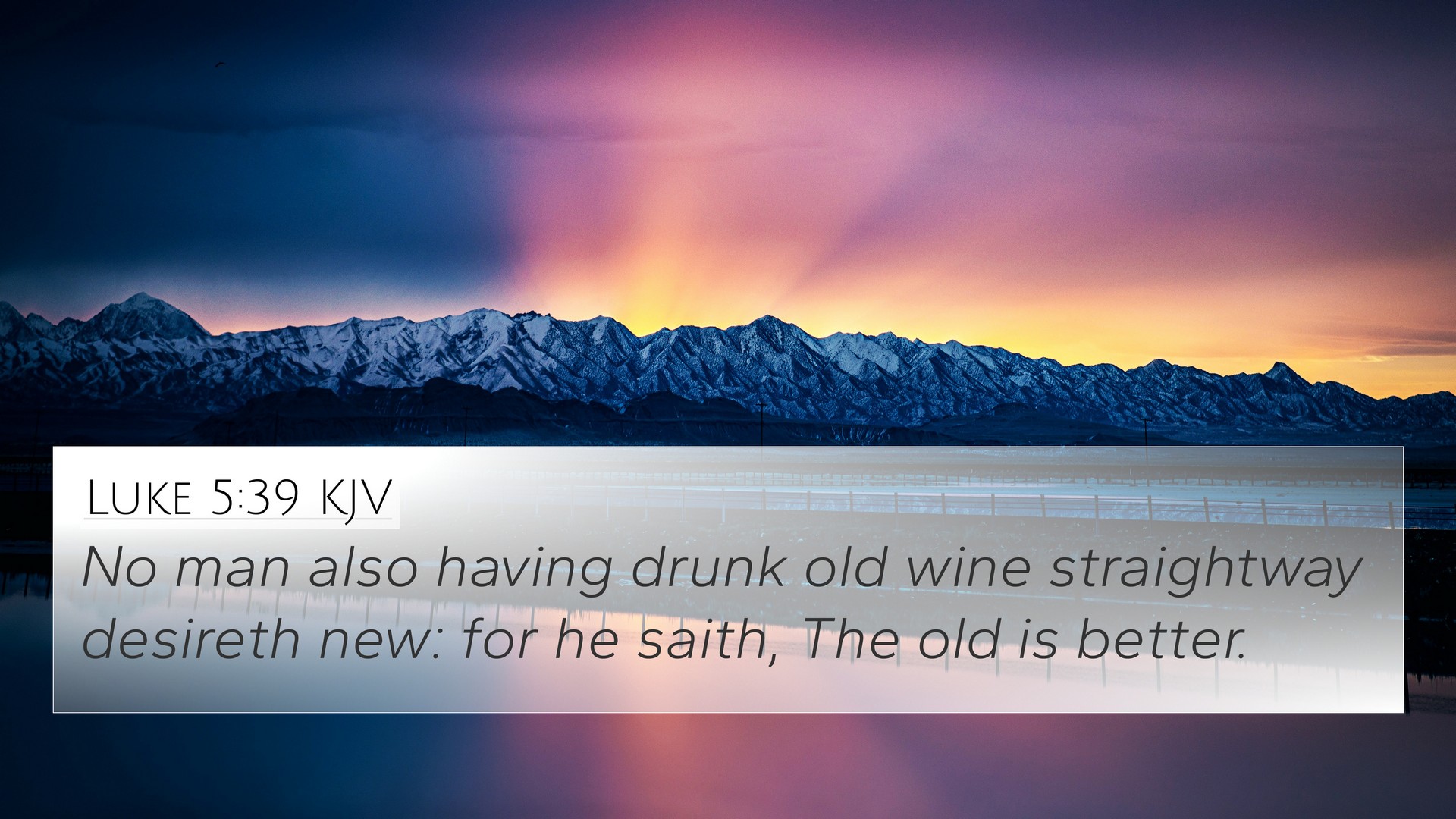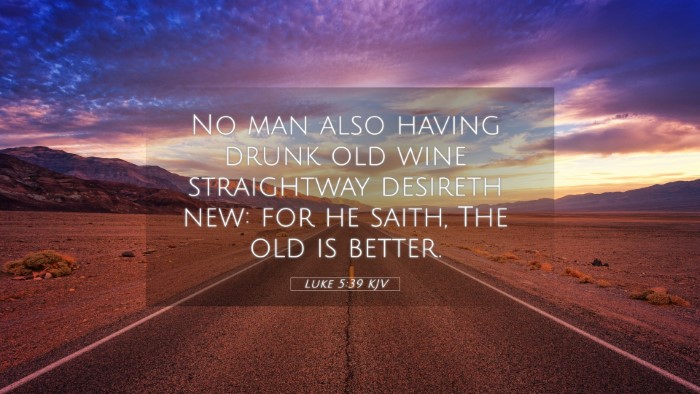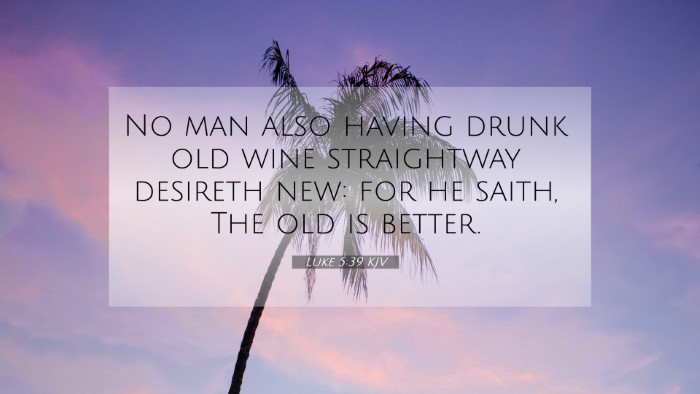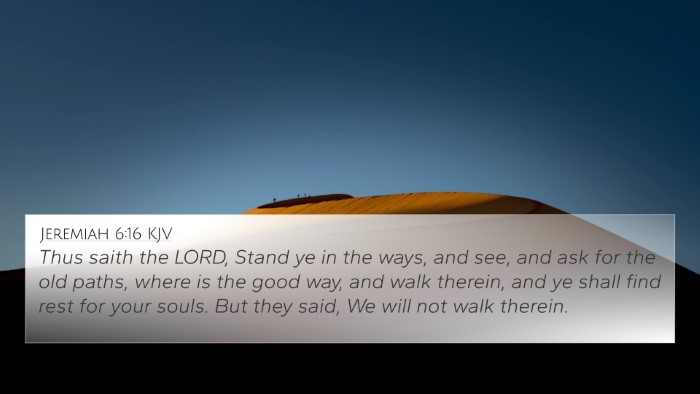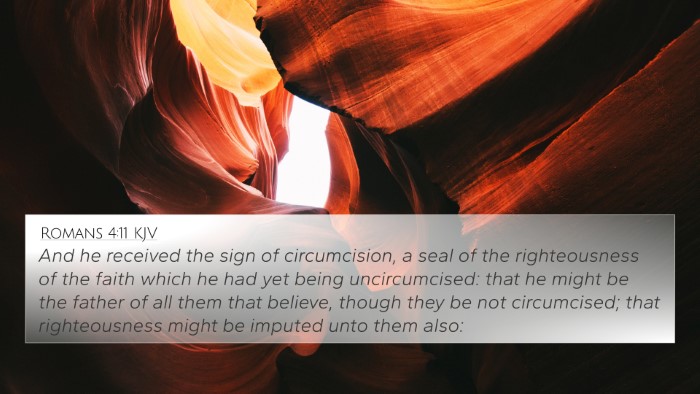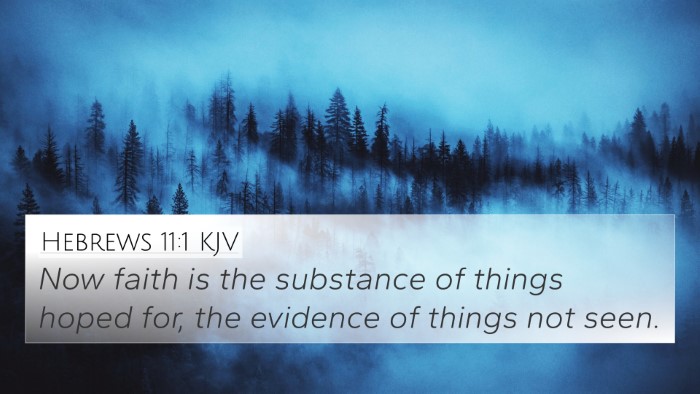Understanding Luke 5:39
Verse: Luke 5:39 - "And no one, having drunk old wine, immediately desires new; for he says, ‘The old is better.’"
Meaning and Interpretation
This verse speaks to the resistance to change inherent in human nature, particularly when it comes to established beliefs and practices. It encapsulates a deeper theological message regarding the nature of the new covenant in Christ contrasted with the old covenant of the law.
Insights from Commentaries
-
Matthew Henry: Henry emphasizes that this proverb highlights the general reluctance of people to embrace change, especially regarding religious practices. He illustrates that those who are accustomed to the 'old wine' (traditional teachings and rituals) may find it challenging to accept the new teachings of Jesus, which challenge and fulfill the old.
-
Albert Barnes: Barnes points out that Jesus uses this saying to show how difficult it is for individuals to appreciate the new spiritual truths He brings. The old wine represents the established religious norms, while the new wine symbolizes the transformative message of the Gospel, which many may find harder to accept.
-
Adam Clarke: Clarke considers the cultural implications of wine and feasting in ancient Jewish society. He suggests that the preference for old wine speaks to a broader human tendency to resist innovations that disrupt familiar patterns, reflecting the challenge of accepting Jesus's radical message.
Thematic Connections
This verse is rich in connections to various theological themes, particularly surrounding change, tradition, and the new covenant. Below, we explore pertinent Bible verse cross-references that highlight these themes:
- Matthew 9:17: "Neither do men put new wine into old bottles: else the bottles break, and the wine runneth out, and the bottles perish: but they put new wine into new bottles, and both are preserved."
- Hebrews 8:13: "In that he saith, A new covenant, he hath made the first old. Now that which decayeth and waxeth old is ready to vanish away."
- 2 Corinthians 5:17: "Therefore if any man be in Christ, he is a new creature: old things are passed away; behold, all things are become new."
- Mark 2:22: "And no man putteth new wine into old bottles; else the new wine doth burst the bottles, and the wine is spilled, and the bottles will be marred: but new wine must be put into new bottles."
- John 3:3: "Jesus answered and said unto him, Verily, verily, I say unto thee, Except a man be born again, he cannot see the kingdom of God."
- Isaiah 43:19: "Behold, I will do a new thing; now it shall spring forth; shall ye not know it? I will even make a way in the wilderness, and rivers in the desert."
- Galatians 5:22-23: "But the fruit of the Spirit is love, joy, peace, longsuffering, gentleness, goodness, faith, Meekness, temperance: against such there is no law."
Comparative Analysis of Related Verses
In studying these verses together, one sees a pattern of how God introduces new revelations that challenge the status quo. This inter-Biblical dialogue encourages believers to be open to transformation and to understand the richness of God’s new covenants. The connections between Bible verses also show that embracing change is crucial for spiritual growth.
Tools for Better Understanding
For those interested in diving deeper into these themes, utilizing Bible reference resources, such as a Bible concordance or a cross-reference Bible study guide, can be extremely beneficial. These tools can help identify connections between Old and New Testament scripture, enhancing one’s understanding of the continuity and evolution of biblical themes.
Conclusion
Luke 5:39 serves as a powerful reminder of the resistance to change that exists within us, particularly in the context of faith and spiritual beliefs. By embracing the new while recognizing the significance of the old, believers can experience the fullness of life in Christ. For those seeking a deeper understanding of how various Bible verses relate to each other, engaging in study methods that explore cross-referenced themes in the Bible will deepen comprehension and provide a more holistic view of God’s message.
